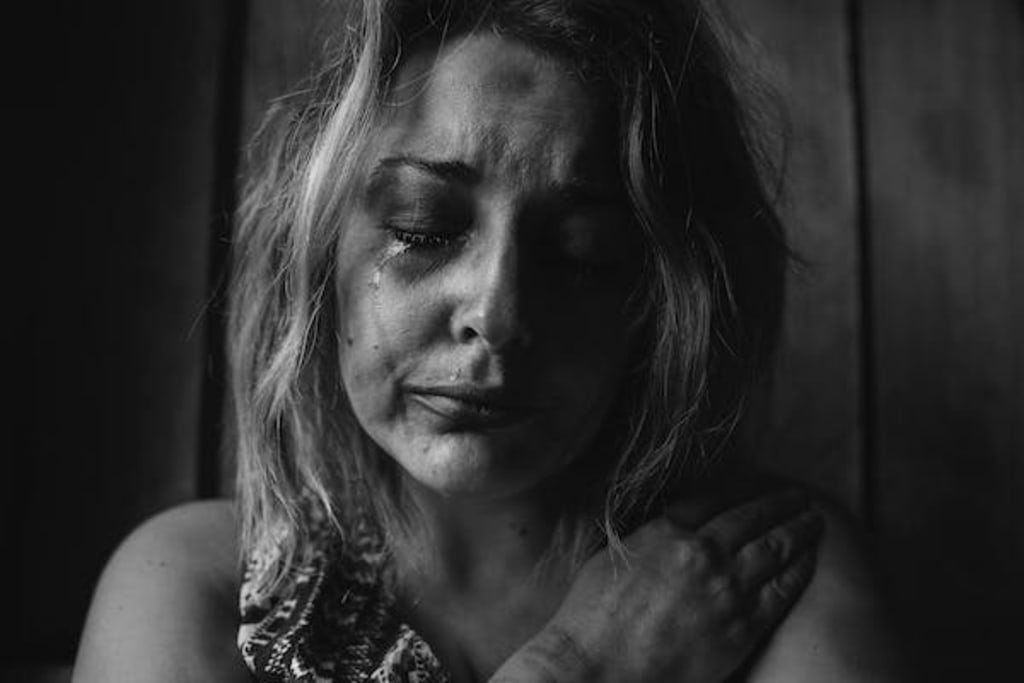Breaking the Chains of Silence
Unveiling the Shadows of Post-Traumatic Stress Disorder (PTSD)

Introduction:
In the vast labyrinth of the human mind, there exist hidden corners, shrouded in the shadows of untold stories. One such haunting presence is Post-Traumatic Stress Disorder (PTSD), a silent struggle that affects countless individuals worldwide. In this blog post, we embark on a journey to shed light on the symptoms, causes, and treatment of PTSD, unraveling the layers that encompass this complex psychological trauma.
I. Understanding the Symptoms:
PTSD leaves deep imprints on the lives of those who have endured trauma. From haunting nightmares that rupture the tranquility of sleep to relentless flashbacks that tear apart the fabric of reality, the symptoms of PTSD are diverse and harrowing. The invisible wounds of trauma manifest as hyperarousal, avoidance behaviors, intrusive thoughts, and emotional numbing, effectively robbing individuals of their peace and stability.
II. Unraveling the Causes:
The causes of PTSD are as diverse as the stories of those who bear its weight. Traumatic experiences such as war, physical or sexual abuse, natural disasters, accidents, or witnessing violence can serve as catalysts, thrusting individuals into the realm of PTSD. However, the intensity and duration of trauma, along with individual factors such as resilience, support systems, and genetic predispositions, play crucial roles in the development of this debilitating condition.
III. Navigating the Treatment Landscape :
While PTSD may cast an indomitable shadow, it is essential to remember that recovery is possible. Various therapeutic interventions offer hope and healing to those grappling with the aftermath of trauma. Evidence-based treatments like cognitive-behavioral therapy (CBT), eye movement desensitization and reprocessing (EMDR), and exposure therapy provide individuals with the tools to confront and process their traumatic memories. Medications, such as selective serotonin reuptake inhibitors (SSRIs), can also alleviate symptoms and aid in the journey toward recovery.
IV. The Power of Compassionate Support:
In the battle against PTSD, support is the beacon of light that illuminates the path to recovery. Encouraging an environment free from stigma and judgment is crucial for those navigating the complexities of PTSD. Loved ones, friends, and mental health professionals who provide unwavering support and understanding create a nurturing space where healing can begin. Group therapy and support networks also offer solace, allowing survivors to share their experiences, find solace in solidarity, and foster resilience.
The Role of Government and Individuals in Addressing PTSD
Post-Traumatic Stress Disorder (PTSD) is not just an individual burden; it is a societal issue that requires a collaborative effort between governments and individuals to effectively address its impact. Both entities play distinct roles in creating an environment that supports prevention, treatment, and recovery for those affected by PTSD.
Government Role:
Policies and Legislation: Governments have a crucial role in enacting policies and legislation that prioritize mental health, including PTSD. This involves allocating resources for mental health services, promoting awareness campaigns, and implementing regulations to protect the rights of individuals with PTSD.
Funding and Access to Treatment: Governments should ensure adequate funding for mental health services, including specialized PTSD treatments. They can establish programs that facilitate affordable access to therapy, medications, and other forms of treatment, reducing financial barriers for individuals seeking help.
Research and Education: Governments can invest in research to advance the understanding of PTSD, its causes, and effective treatments. By supporting research institutions and collaborating with mental health experts, governments can contribute to the development of evidence-based practices and guidelines for PTSD management.
Support for Veterans and First Responders: Governments must acknowledge the specific needs of veterans and first responders who often face traumatic experiences in the line of duty. Establishing specialized support programs, accessible healthcare services, and post-trauma counseling for these individuals can help alleviate the burdens of PTSD.
Individual Role:
Seeking Help: Individuals experiencing symptoms of PTSD must recognize the importance of seeking professional help. By reaching out to mental health providers, individuals can receive appropriate diagnoses, treatment, and support tailored to their unique circumstances. It is crucial to overcome the stigma associated with mental health issues and actively seek assistance.
Supporting Loved Ones: Friends, family, and communities have a vital role in supporting individuals with PTSD. Listening without judgment, offering emotional support, and encouraging loved ones to seek professional help can make a significant difference in their recovery journey.
Raising Awareness: Individuals can play an active role in raising public awareness about PTSD. By sharing personal experiences, participating in advocacy initiatives, and dispelling misconceptions, individuals can help reduce the stigma surrounding PTSD, promoting empathy, and understanding in society.
Building Resilience: Individuals can engage in self-care practices to enhance their resilience and manage stress. Regular exercise, healthy lifestyle choices, mindfulness, and seeking social support contribute to overall well-being and can support individuals in coping with PTSD symptoms.
The collaboration between the government and individuals is crucial for effectively addressing the challenges of PTSD. Governments should create an enabling environment through policies, funding, research, and specialized support programs. Simultaneously, individuals must actively seek help, support one another, raise awareness, and build resilience. By working together, we can foster a society that understands and supports those affected by PTSD, promoting healing, and improving overall mental health outcomes.
Conclusion:
Post-Traumatic Stress Disorder, with its enigmatic nature, can be an overwhelming force in the lives of those affected. By recognizing the symptoms, understanding the causes, and embracing effective treatments, we can collectively foster an environment of empathy and support. Through this shared endeavor, we aim to break the chains of silence, enabling survivors to reclaim their lives and heal the wounds of the past. Together, we can embark on a journey of compassion, resilience, and renewal, ultimately conquering the shadows of PTSD and paving the way for a brighter future.
About the Creator
FELIX Olikagu
Captivating storyteller and compassionate wordsmith. Join me on a journey through the power of words, as we explore diverse topics with depth, creativity as it concerns Health issues, Environment, Emotions, and a touch of magic. Explore!






Comments
There are no comments for this story
Be the first to respond and start the conversation.